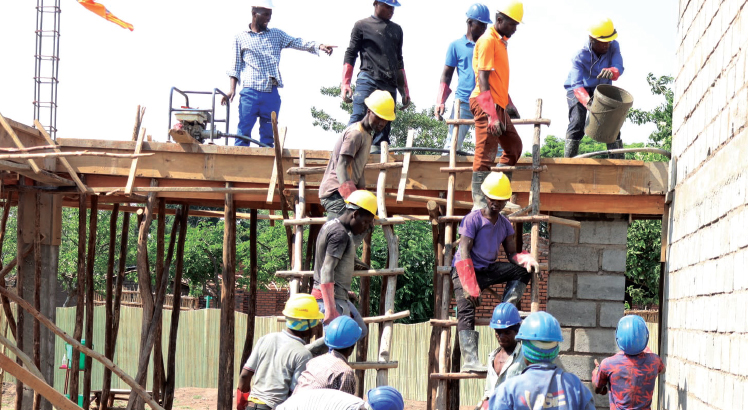How college talk birthed business
nlike many students, six learners at the Lilongwe University of Agriculture and Natural Resources (Luanar) wanted to become job creators, not job seekers.
From their childhood talks, it was clear they wanted change.
The campus discussions has given rise to Acades Youth Farmers Association, one of the few youth-led cooperatives nationwide.
The agricultural science and economics graduates combined their know-how and expertise to come up with an ambitious business now funded by the Agriculture Commercialisation (Agcom) project to the tune of K189 million.

“We were studying different programmes at Bunda Campus, but we strongly believed in sharing ideas to come up with a joint project worth pursuing after graduating,” Acades co-chairperson Hastings Nhlane explains.
Since its inception in 2013, the association now convenes over 3 000 youthful farmers who produce certified soyabean seed, soyabean grain and common beans.
“Creating Acades wasn’t just born of the desire to apply classroom theories to contribute to national development,” says Nhlane.
According to his co-chairperson Madalitso Chipekwe, the group was tightly knit by a shared interest to tackle the country’s massive youth unemployment.
“The main reason was to employ ourselves and fellow young Malawians. We didn’t want to wait for employment,” she says.
The founders envisaged their start-up churning out high-value exports from their harvests instead of selling raw grain.
Currently, Acades has attracted trusted buyers or off-takers both locally and internationally.
Their projections show that the group will export 1 000 metric tonnes of soyabean grain to Kenya and South Africa this year.
Agcom jackpot
Acades has won the Agcom matching grant after submitting a business improvement plan and paying 30 percent of the desired capital as a commitment fee.
The government’s flagship project to transform farming from a hand-to-mouth activity to life-changing business is funded by $95 million loan from the World Bank.
It offers the matching grants to agricultural groups with ready markets. The recipients are expected to contribute 30 percent of the required funds both in cash or in kind to demonstrate seriousness.
Thanks to the funding mechanism, Acades is constructing an imposing multipurpose structure at Mpingu rural trading centre on the western margins of Lilongwe City. The facility taking shape comprises a factory, warehouse and offices.
Over 50 locals are working on the construction site.
The block sits at the centre of a seven-hectare affair expected to become an agro-industrial park and end the group’s pressing needs.
“This is a dream come true,” says Nhlane. “The factory will add value to our products and the warehouse will reduce the storage costs and post-harvest losses. We want to make this a centre of excellence.”
The group also plans to install irrigation facilities instead of solely depending on unpredictable rains.
Counting the gains
For years, the cooperative has been renting storage facilities, especially for soyabeans. Even seed producers have been losing their grain and revenue to poor storage as they had to keep soyabeans in their homes for lengthy periods.
“The increasing production and storage costs have been eating into the revenue for both farmers and the group,” explains Nhlane.
In the absence of processing machinery, the group has been selling raw grains at low prices.
When the factory roars into action, the founders’ quest for value addition will get underway.
They expect higher productivity as the irrigation facilities will allow farmers to grow different crops three times a year.






2 Comments